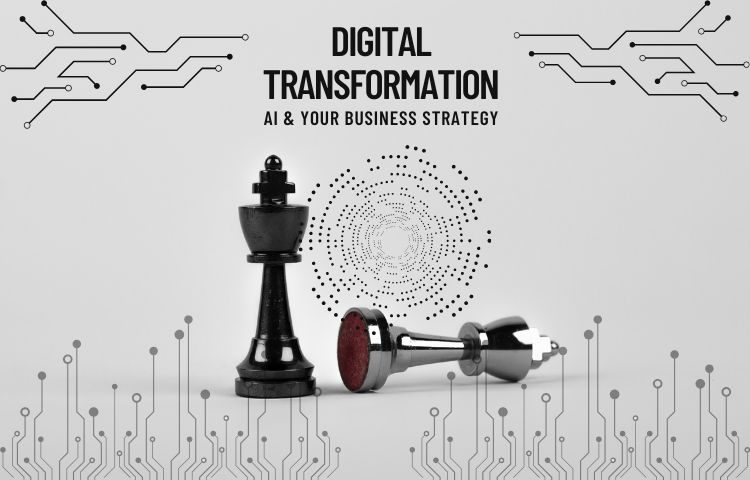

Prefer to listen instead? Here’s the podcast version of this article.
Digital transformation (DX) is considered one of the most critical initiatives several organizations are pursuing or have already undertaken. The urgency is due to the convergence of various technologies, including SaaS, mobile, robotics, IoT (Internet of Things), virtual reality (VR), and more, which play a vital role in the DX journey of companies. Nevertheless, it is essential to understand how artificial intelligence (AI) and machine learning (ML) will serve as the primary drivers of digital transformation for organizations moving forward.
Digital transformation is using digital technologies to fundamentally change how a business operates and delivers value to customers. It involves rethinking and redesigning business processes, products, and services to take advantage of digital technologies such as cloud computing, artificial intelligence, and the Internet of Things (IoT).
It may involve a wide range of activities, such as adopting new technologies, automating business processes, developing new digital products and services, and creating new business models. Digital transformation requires a cultural shift within organizations focusing on innovation, collaboration, and agility.
AI combines various technologies that enable machines to detect, comprehend, act, and learn independently or to enhance human activities. AI can perform tasks like humans, such as learning and distinguishing between objects. Nonetheless, AI possesses a significant advantage over humans – it can quickly extract insights from vast datasets and generate new information. There have been numerous studies conducted on the potential impact of AI on the economy and the workforce which suggests that AI has the potential to increase annual economic growth rates by 2035, as it can revolutionize the nature of work and establish a new relationship between man and machines, thereby enhancing labor productivity by up to 40%.
Although AI is integrated into numerous services we use daily, we may not always be aware of its presence. For instance, when a shopping app recommends products to purchase, it employs an AI-based system to suggest products based on your previous purchases and other customers’ buying behavior (suggested products). As AI evolves, it becomes more sophisticated and can learn without human interaction. AI has a wide range of applications across industries, including healthcare, finance, transportation, and manufacturing. Some common examples of AI include virtual assistants like Siri and Alexa, self-driving cars, fraud detection systems, and image and speech recognition software.
AI finds extensive utility in business, serving various purposes, and its use is rapidly increasing as organizations strive to enhance efficiency, productivity, and customer satisfaction. Here are a few common examples of how AI applications in businesses:
AI is a valuable tool for businesses that can help to improve operational efficiency, leading to cost savings and increased revenue. By automating repetitive tasks, AI frees employees to focus on more strategic and creative activities, boosting their productivity and job satisfaction. Moreover, AI can provide real-time insights and recommendations, enabling businesses to respond quickly to market changes and customer needs.
It can also improve the customer experience by providing personalized and responsive service, such as through AI-powered chatbots or personalized recommendations. Personalization can enhance customer satisfaction and loyalty, increasing revenue and profitability. Additionally, AI can identify emerging trends and opportunities, providing businesses with strategic insights for growth and innovation.
AI is a key contributor driving digital transformation. In recent years, AI has become an integral part of business operations, allowing companies to analyze data, make informed decisions, and automate processes. As a result, AI has proven to be an effective tool for diversifying business strategies that business leaders must consider. AI-powered solutions can help businesses streamline operations, reduce costs, and improve efficiency, leading to increased profitability. Some common ways AI is leveraged in digital transformation strategies include:
For instance, an insurance company can use AI to detect fraudulent claims, reducing the risk of losses and improving its bottom line.
AI has become one of the key technologies that can help organizations stay competitive and thrive in the modern digital landscape. It should also be noted that while AI has the potential to revolutionize business operations, it also poses challenges such as ethical concerns, job displacement, and the need for new skills and training. Therefore, organizations need to carefully consider the potential benefits and challenges of AI as they adopt these technologies in their digital transformation strategies.
WEBINAR